Bringing a pet into your life is a source of endless joy and unwavering companionship. However, it also comes with a bundle of responsibilities. Whether you are a seasoned pet owner or a first-timer, ensuring the happiness and well-being of your furry friend is a top priority. This blog serves as your all-in-one resource, offering a wide range of essential advice and insights. We will dive into the specifics of pet health, talk about the importance of pet-proofing your home, explore ways to keep your pet active and mentally stimulated, stress the value of building strong bonds, provide training tips, and give advice on caring for your pet during both hot summers and cold winters. We will also cover crucial pet safety measures to protect your beloved companion. Join us on this educational journey as we provide you with the knowledge and tools to be an outstanding pet parent, entirely dedicated to your pet’s health, happiness, and overall well-being.
1. Tips for Maintaining Your Pet's Health
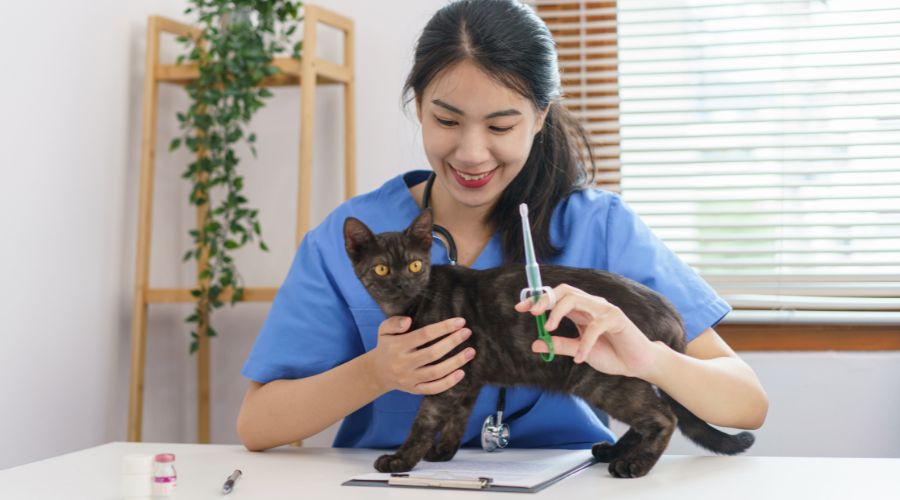
Feed Your Pet A Balanced And Nutritious Diet – Providing your pet with a well-balanced and nutritious diet is fundamental to their health. Consult your veterinarian to make sure that you are feeding your pet the right type and amount of food, suitable to their specific needs.
Keep Your Pet at a Healthy Weight – Maintaining a pet’s healthy weight is very important. Overweight pets are at risk of various health issues, including diabetes and joint problems. Regular exercise and portion control are essential for keeping them in shape.
Spaying or Neutering Your Pet – Spaying or neutering your pet not only helps control the pet population but also reduces the risk of certain diseases and behavioural problems. Discuss with your vet the best time to do this for your pet.
Vaccinate Your Pet – Vaccinations are essential to protect your pet from common and potentially life-threatening diseases. Keep a schedule for your pet’s vaccinations, and discuss any concerns with your vet.
Make Annual Vet Appointments – Regular check-ups with your veterinarian are crucial for catching health issues early and maintaining your pet’s overall well-being. These visits also allow you to discuss any concerns or questions you may have about your pet’s health.
Prepare A First Aid Kit For Your Pet – Just as you would have a first aid kit for your family, it’s essential to have one for your pet too. Include items like bandages, antiseptics, and any medications your pet might need in an emergency.
Take Pet Insurance – Consider getting pet insurance to help cover unexpected veterinary expenses. This can ease the financial burden if your pet ever faces a serious illness or injury. Make sure to choose a policy that suits both your pet’s needs and your budget.
Clean Your Pet’s Teeth – To keep your pet healthy, make sure to take care of their teeth. Brush their teeth, give them dental chews and toys, and visit the vet regularly to prevent dental problems and keep your pet happy and strong.
2. Household Maintenance and Security for Pets

Maintaining Your Pet’s Hair – Regular grooming and brushing of your pet’s hair is essential for their well-being. This routine not only keeps your pet looking their best with a healthy, shiny coat but also serves various health benefits. Brushing helps distribute natural oils, preventing matting and reducing shedding. Moreover, it’s an excellent opportunity to check for fleas, ticks, or any skin issues, ensuring your pet’s overall comfort and hygiene.
Ensure a Clean Litter Box – For pet owners (especially cats), maintaining a clean litter box is crucial for their health and overall hygiene. Cats like things tidy, and a dirty litter box can make them upset and not want to use it. So, make sure to scoop out the waste regularly and change the litter when it’s necessary. This way, your pet will have a clean and comfy spot, which makes them happier and healthier.
Create a Secure Shelter for Your Pet – Create a special area in your home that is just for your pet. This should be an easy-to-access place where they can go for comfort and security. Make sure it’s free from possible dangers such as sharp objects, choking hazards, or toxic substances. Include their bed, toys, food and water dishes, and make it cosy and inviting. Having a secure shelter helps reduce the anxiety of your pet and provides them with a sense of belonging in your home.
Frequent Cleaning Of Your Pet’s Belongings – Just like humans, pets also prefer a clean living environment. Regularly wash your pet’s bedding, toys, and dishes to prevent the buildup of dirt, bacteria, and odours. Clean items that come into close contact with your pet to ensure a healthy and comfortable living space.
Watch Out For Electrical Cords – Pets, particularly puppies and kittens, may be drawn to chew on electrical cords, which can lead to electrical shocks or even fires. Use protective covers for cords or keep them out of your pet’s reach. Training your pet not to chew on cords and watching them during playtime can also help in avoiding any kind of dangerous situation.
Keep Your Pet Away From Human Food – Many human foods can be harmful or even poisonous to pets. Keep your pet away from the table and ensure that trash and leftovers are disposed of securely. Foods like onions, chocolate, grapes, and foods that are high in fat can be harmful to pets, and it’s essential to have complete knowledge regarding what is safe for your specific pet’s diet.
3. Physical Activity and Mental Stimulation for Pets
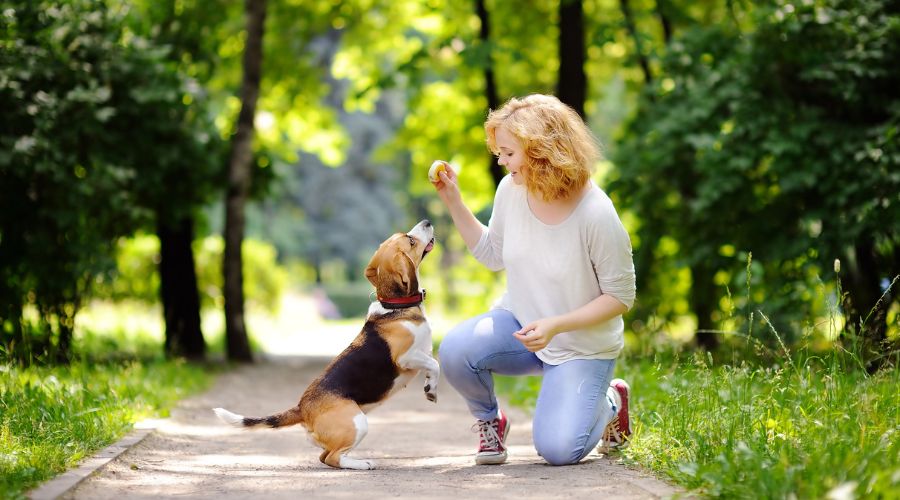
Importance of Exercise – Regular physical activity helps in controlling weight, enhances cardiovascular health, and lowers the risk of obesity-related problems, all of which are essential for safeguarding a pet’s general health.
Mental Stimulation – It is essential to keep your pet’s mind engaged with toys and training activities (such as skill training and hiking), which help them be active and boost their mental as well as physical growth.
Problem-Solving Skills – Pets can enhance their cognitive skills by playing interactive games and solving puzzles that enhance their cognitive abilities and develop a sense of achievement.
Behavioural Improvement – Handling and reducing behavioural problems like nervousness, excessive barking, or destructive behaviour can be accomplished with regular mental and physical activity.
Stress Reduction – Pets’ emotional health and general happiness are enhanced by mental stimulation and exercise, which also help to lower anxiety and depression in them.
Energy Release – Engaging in physical activity not only provides an essential energy release for your furry friends but also serves as a powerful source of mental stimulation, keeping their minds as vibrant as their paws.
Environmental Enrichment – Introducing variation into a pet’s environment not only improves their quality of life but also reduces the likelihood of boredom and behavioural problems.
Learning and Training – Training isn’t just about teaching tricks; it’s the key to unlocking a world of physical activity and mental stimulation for your pets, fostering a deeper connection and a healthier, happier life together.
Species-Specific Needs – Understanding the species-specific needs of your pets is vital for tailoring physical activities and mental stimulation that cater to their unique instincts, ensuring a fulfilling and well-rounded life for each furry family member.
Preventing Destructive Behaviour – Adequate physical and mental engagement is a proactive way to prevent destructive behaviours such as chewing, scratching, or digging by redirecting their energy and focusing on more appropriate activities.
4. Building Strong Bonds With Your Pet
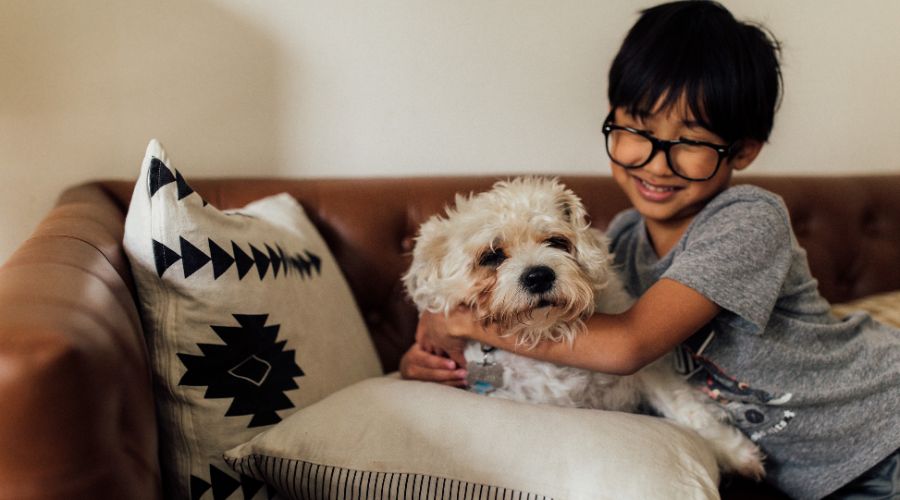
Be a Friend to Your Dog – Being a friend to your dog is like having a forever playdate. Run around the backyard, go on a long walk and play frisbee together. By engaging in fun activities, you will create memorable moments that strengthen your bond. Your dog will see you as a source of joy and companionship.
Create a Regular Schedule – Maintaining consistency is essential, as routines are what pets thrive on. Set up a regular routine for their playing, walking, eating, and sleeping. They will learn to trust you as their dependable caretaker since you are predictable, which makes them feel secure.
Give Some Pampering and Cuddles – The universal language of love for your pets is pampering and cuddling. You can touch their fur, rub their tummy, or scratch behind their ears on a regular basis. Your warmth and love are communicated through these tender actions. Your pet will give you everlasting affection in return.
Have Patience With Your Pet – Being patient is very important while training your pet. Understand that learning anything new takes time, whether it’s learning how to behave, play games, or face anxiety. Your patience will eventually pay off, as they will continue to try when you provide them with some treats or praise.
Learn to Read Your Pet’s Body Language – Body language is the main way in which pets communicate. Keep a check on their vocalisations, ear posture, and tail wagging. Flattened ears may be an indication of anxiety, whereas a wagging tail can represent happiness. By recognising their indications, you can respond to them appropriately and build mutual understanding and trust.
Hang Out With Them While They Eat – Mealtime conversations are a great way to build relationships with your pet. While your pet is eating, stay close by and communicate with them, or give them a small treat from time to time. This strengthens your bond with the pet as well as your role as a supplier of nourishment. A feeling of comfort and togetherness is developed by eating together.
5. Pet Care During the Summer Season
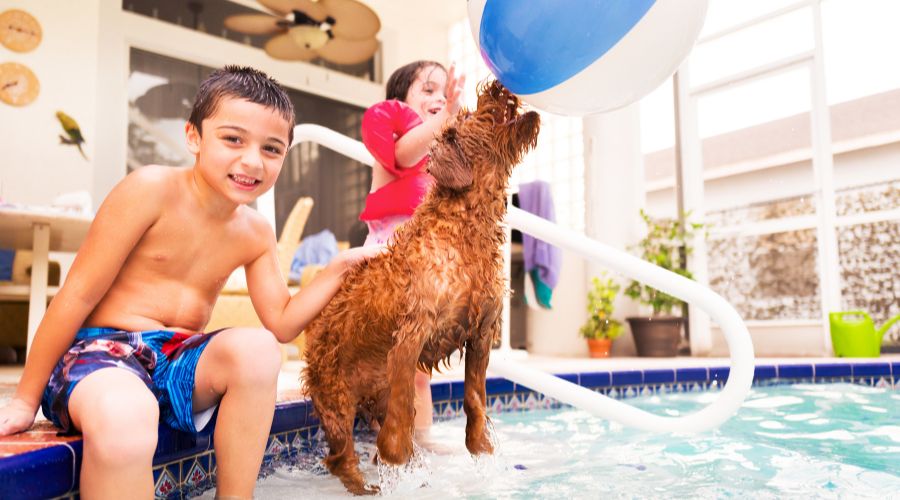
Hydration and Shade – To ensure that your pet remains sufficiently hydrated, especially in hot weather, you must provide them with an abundance of water. In order to keep them from being too hot or uncomfortable, make sure they have access to a shady spot where they can protect themselves from the sun.
Sun Protection – Consider applying sunscreen that is safe for your pets when they go outside. Their risk of sunburn and skin damage can be reduced because of this extra layer of protection that helps save them from harmful UV radiation.
Caring For Their Paws – Pay attention to the temperature of the surfaces your pet walks on during the warmer months. Their paw pads can get burned by hot footpaths and sand. To prevent this, find cooler paths for walks or use protective booties to keep their paws safe and comfortable.
Car Safety – It can be harmful for your pet to overheat if they are left inside a parked car, especially on a sunny day. Never leave your pet alone in a car, as the interior temperature can quickly become life-threatening to them.
Grooming for Comfort – Maintaining regular fur trimming will help your pet stay comfy and cool, especially if they have a thick coat. This is especially crucial in the summer since it prevents them from overheating and improves airflow through their fur.
Clothing Considerations – Although some pets may tolerate wearing clothes, it’s important to put their comfort first. Keep in mind the temperature and their personal preferences at all times, and keep away from anything that would restrict their movement or make them uncomfortable.
Parasite Prevention – It is essential for your pet’s health to keep them free from parasites. Visit your veterinarian for advice on effective ways to keep your pet free of fleas and ticks. To keep your pet healthy and protect them from parasites, make sure they have regular check-ups and vaccines.
6. Pet Care During the Winter Season
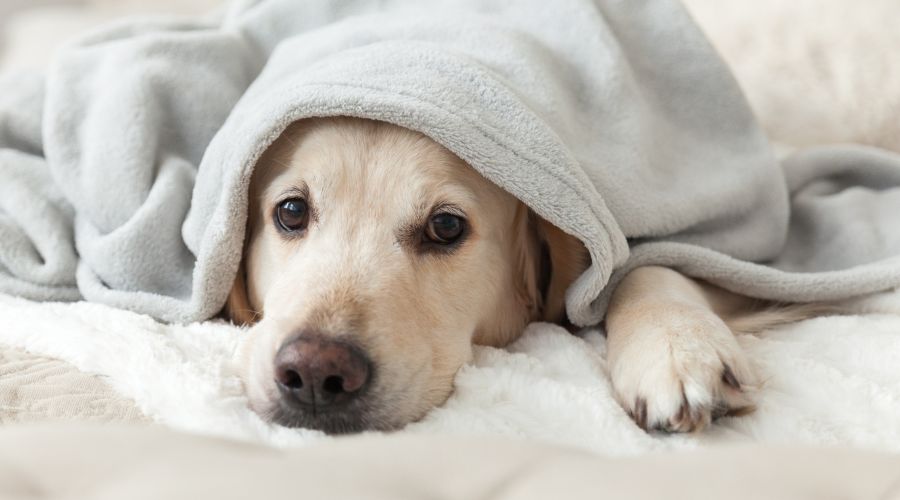
Limit Outdoor Playtime to Daylight Hours – Increasing your pet’s outdoor activities to the daylight hours when the weather is generally warmer is important throughout the winter months. This helps them avoid exposure to extreme cold and keeps them safe and comfortable.
Ensure Cosy and Comfy Bedding – The bedding you give your pet should be cosy and warm, shielding them from the chilly floor. To make sure your pet stays cosy and happy during the winter season, make an investment in high-quality bedding.
Avoid Excessive Feeding – During the winter, overfeeding can be an ordinary mistake. Even though your pet might require a little extra energy to stay warm, take care not to overfeed them. To maintain their weight and general health, proper portion control is essential.
Regular Trimming and Grooming – Pets’ fur acts as an internal defence system against the cold. To improve the insulating qualities of their coat and keep your pet warm during the winter, give them regular trimming and grooming.
Frequent Water Changes Are Essential – Even in the cold, it’s necessary to provide your pet with enough water. Make sure they have constant access to fresh, non-frozen water by changing their drinking water on a regular basis.
Wrap Your Pet in Warm Clothing – If you have pets with shorter hair or smaller heights, then you can consider covering them with warm clothes that are suitable to protect them from cold. This additional covering keeps them warmer when they go outside.
Prioritise Winter Health Checkups – One preventative way to make sure your pet is healthy during the winter is to schedule a checkup. Frequent veterinary checkups are necessary to identify and treat any concerns early on since cold weather can make some health issues worse.
7. Prioritising the Well-Being and Safety of Your Beloved Pet
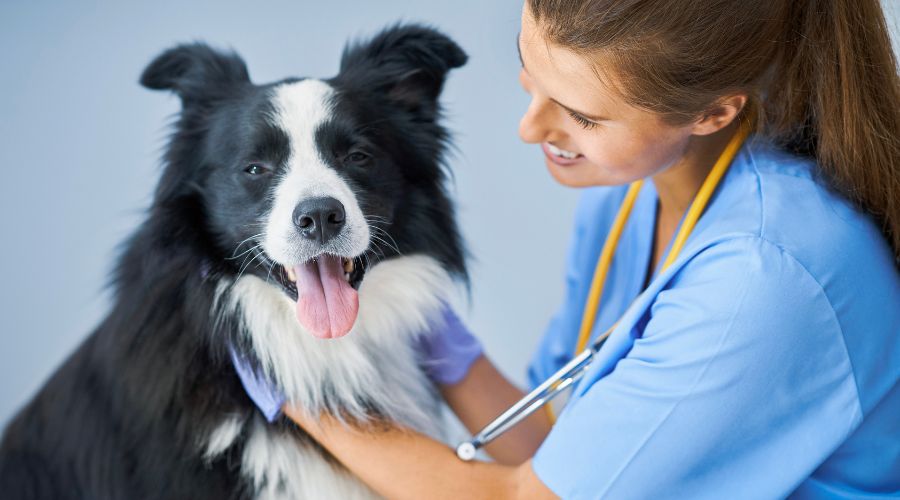
Safe Travel – Give your pet’s comfort and safety a top priority when you travel with them. Use a safety harness in the car or secure them in a carrier with good ventilation to reduce the risk of accidents and ensure a stress-free ride.
Maintaining Identification – Make sure your dog’s identification is always on hand by keeping a tag firmly attached to their collar. This simple step can be a lifesaver if your pet ever gets lost.
Microchipping for Security – Having your pet microchipped will increase their security. Usually positioned in the space between their shoulder blades, this tiny implant gives you a permanent way of locating them in case they get separated from you.
Leash Discipline in Public – It is essential that your dog always be kept on a leash in public areas. This ensures not only their safety but also the safety of others. Additionally, it helps you maintain control in unfamiliar or crowded environments.
Regular Dental Care – The oral health of your pet should not be ignored. Regular dental care can avoid dental problems and keep your pet comfortable and happy. Some examples of this care include brushing their teeth and giving them suitable chew toys.
Socialisation and Playtime – By letting your pet interact with other animals, you can promote socialisation in them. Their social skills can be improved and they can get both physical and mental stimulation from these interactions. Playtime is good for your pet’s health and happiness, in addition to strengthening your relationship with them.
Final Words
Being a responsible and loving pet owner comes with great rewards and responsibilities. These ultimate tips can serve as a guide to help you provide the best possible care for your furry friends. From nutrition and grooming to exercise and medical care, the well-being of your pet is in your hands.
Remember that each pet is unique, with its own needs and quirks. Taking the time to understand and meet those needs while showering them with love and attention is the key to building a strong and enduring bond. Always consult with your veterinarian for personalised advice and guidance, and be prepared for a lifetime of joy and companionship as you navigate the wonderful journey of pet ownership. Your pet’s loyalty and affection will undoubtedly be your greatest reward.

